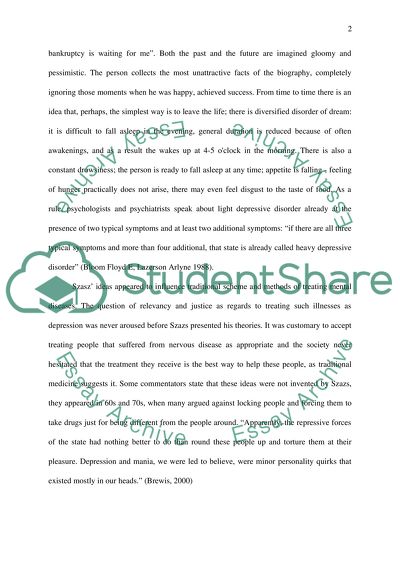Cite this document
(Mental Disorder Module in the Theories of Thomas Szasz Coursework - 1, n.d.)
Mental Disorder Module in the Theories of Thomas Szasz Coursework - 1. https://studentshare.org/health-sciences-medicine/1535509-mental-health-and-mental-disorder-modulepsychososial-studies-degree
Mental Disorder Module in the Theories of Thomas Szasz Coursework - 1. https://studentshare.org/health-sciences-medicine/1535509-mental-health-and-mental-disorder-modulepsychososial-studies-degree
(Mental Disorder Module in the Theories of Thomas Szasz Coursework - 1)
Mental Disorder Module in the Theories of Thomas Szasz Coursework - 1. https://studentshare.org/health-sciences-medicine/1535509-mental-health-and-mental-disorder-modulepsychososial-studies-degree.
Mental Disorder Module in the Theories of Thomas Szasz Coursework - 1. https://studentshare.org/health-sciences-medicine/1535509-mental-health-and-mental-disorder-modulepsychososial-studies-degree.
“Mental Disorder Module in the Theories of Thomas Szasz Coursework - 1”. https://studentshare.org/health-sciences-medicine/1535509-mental-health-and-mental-disorder-modulepsychososial-studies-degree.


